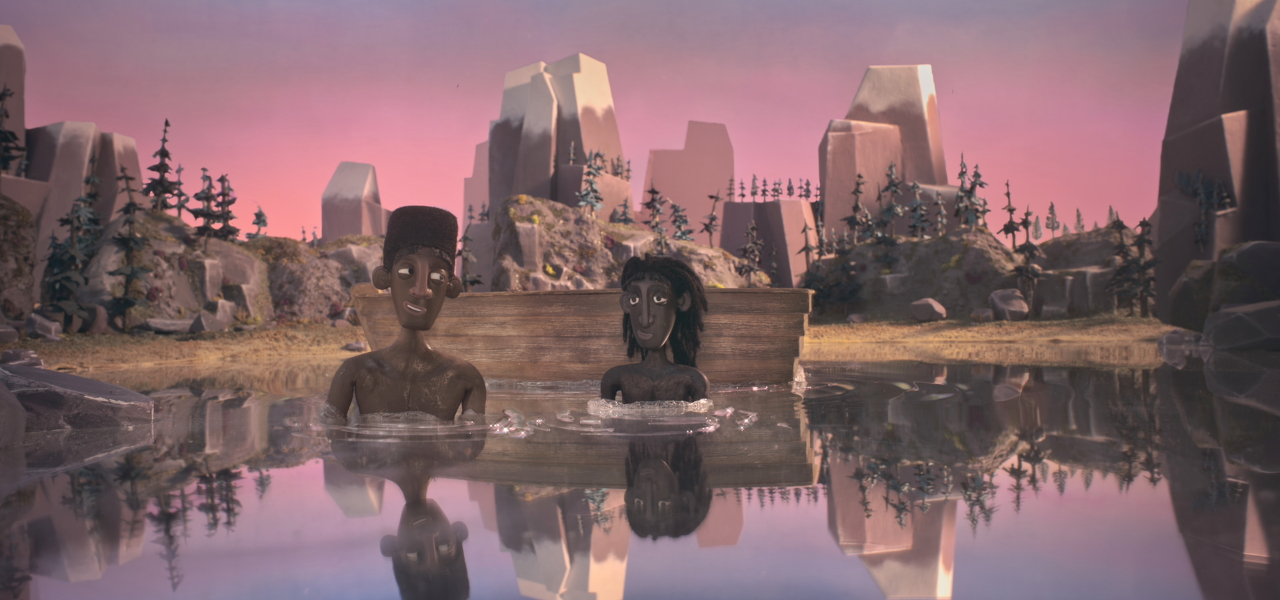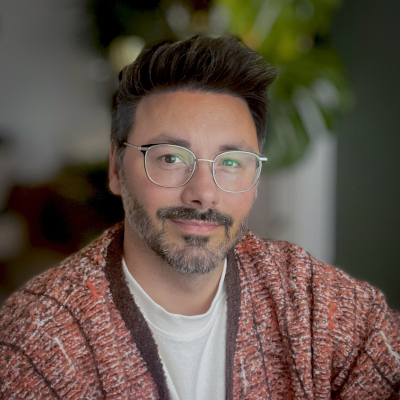Welcome to Cartoon Brew’s series of spotlights focusing on the animated shorts that have qualified for the 2026 Oscars. The films in this series have qualified through one of multiple routes: by winning an Oscar-qualifying award at a film festival, by exhibiting theatrically, or by winning a Student Academy Award.
Today’s short is Two Black Boys in Paradise, directed by Baz Sells and produced by One6th Animation Studio. The film has enjoyed a stellar festival run, qualifying for the Oscars by winning Best Animation at the Oscar-qualifying Woodstock Film Festival.
Two Black Boys in Paradise follows Edan and Dula, two young Black men on the cusp of adulthood, as they navigate love, identity, and the courage it takes to step fully into oneself. Their intimate journey unfolds in a stop-motion world whose textures and deliberate imperfections mirror the vulnerability of their emotional evolution. Luminous, serene sequences of “paradise” contrast with the dank, intrusive reality of a British marketplace, where fear, shame, and societal pressures threaten to fracture their connection. Based on Dean Atta’s poem of the same name, the short features symbolic imagery and visually striking puppets and backgrounds. It stands as a tender celebration of queer love and of finding belonging among those who matter most to us.
Cartoon Brew: What was it about this story or concept that connected with you and compelled you to direct the film?
Baz Sells: Dean Atta’s poem Two Black Boys in Paradise spoke to me foremost because of its raw honesty. It’s a poem that offers a hopeful look at what a free and evolved world could look like for two Black boys in love, but equally, the poem asks challenging questions that are rooted in reality. These themes were incredibly compelling to me in their own right, but also because they allowed me to support our producer Ben Jackson – a long-term friend and collaborator – as he sought to find a project that would allow him to express aspects of his own journey coming out.
What did you learn through the experience of making this film, either production-wise, filmmaking-wise, creatively, or about the subject matter?
From concept to completion, it took five years to make TBBIP. There were massive creative and technical challenges, but one of the most valuable experiences was navigating this subject matter alongside Ben and Dean. As a writer-director, I rely heavily on my instincts and sensitivity, but on TBBIP, I felt an added responsibility to do justice to the lived experiences Ben and Dean shared with me throughout production. Navigating those themes on screen was one thing, but another was navigating the conversations behind the scenes. It was a deeply rewarding process; I learned a lot about myself and our incredible team.
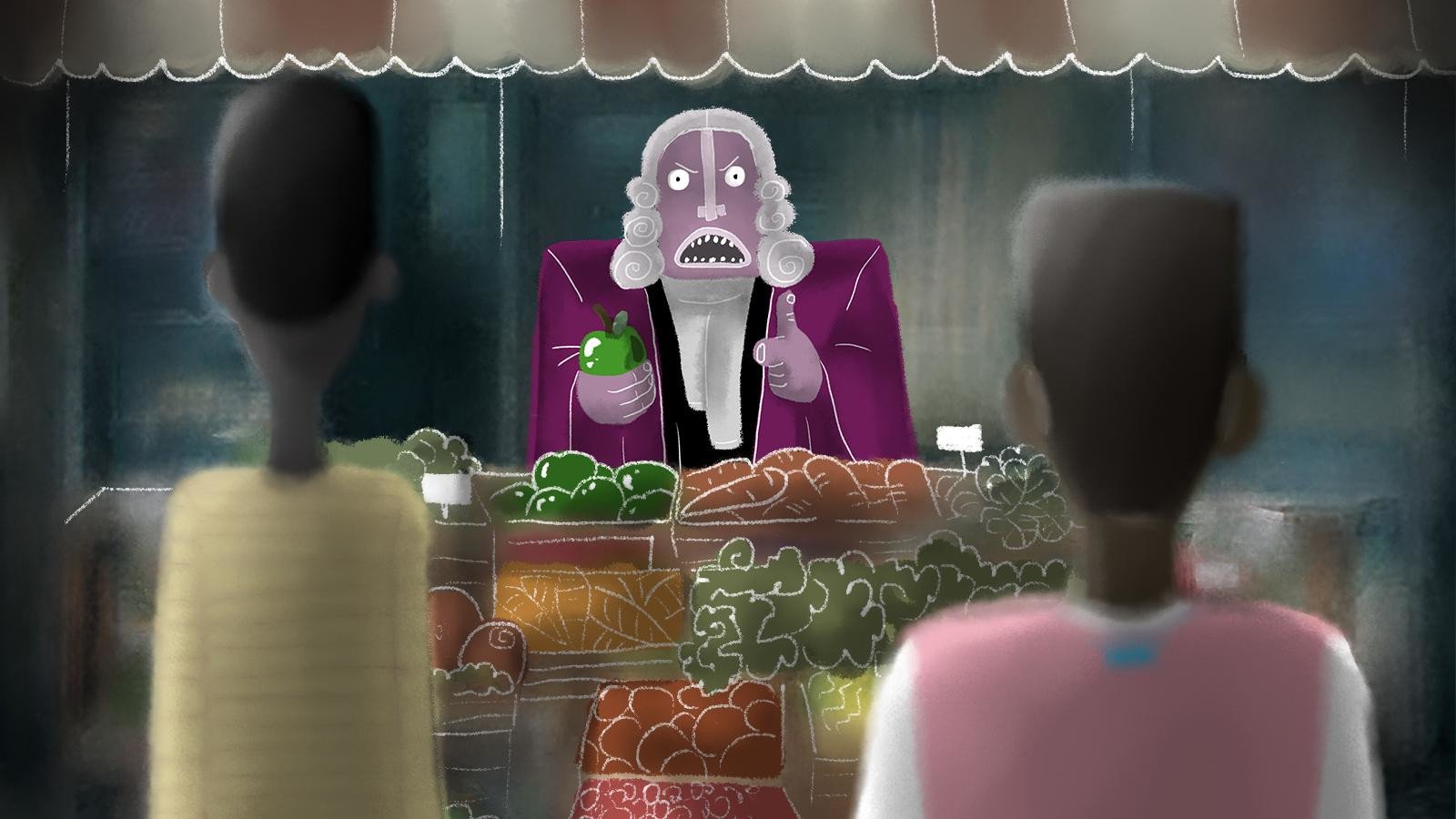 ‘Two Black Boys in Paradise’ Concept Art
‘Two Black Boys in Paradise’ Concept Art
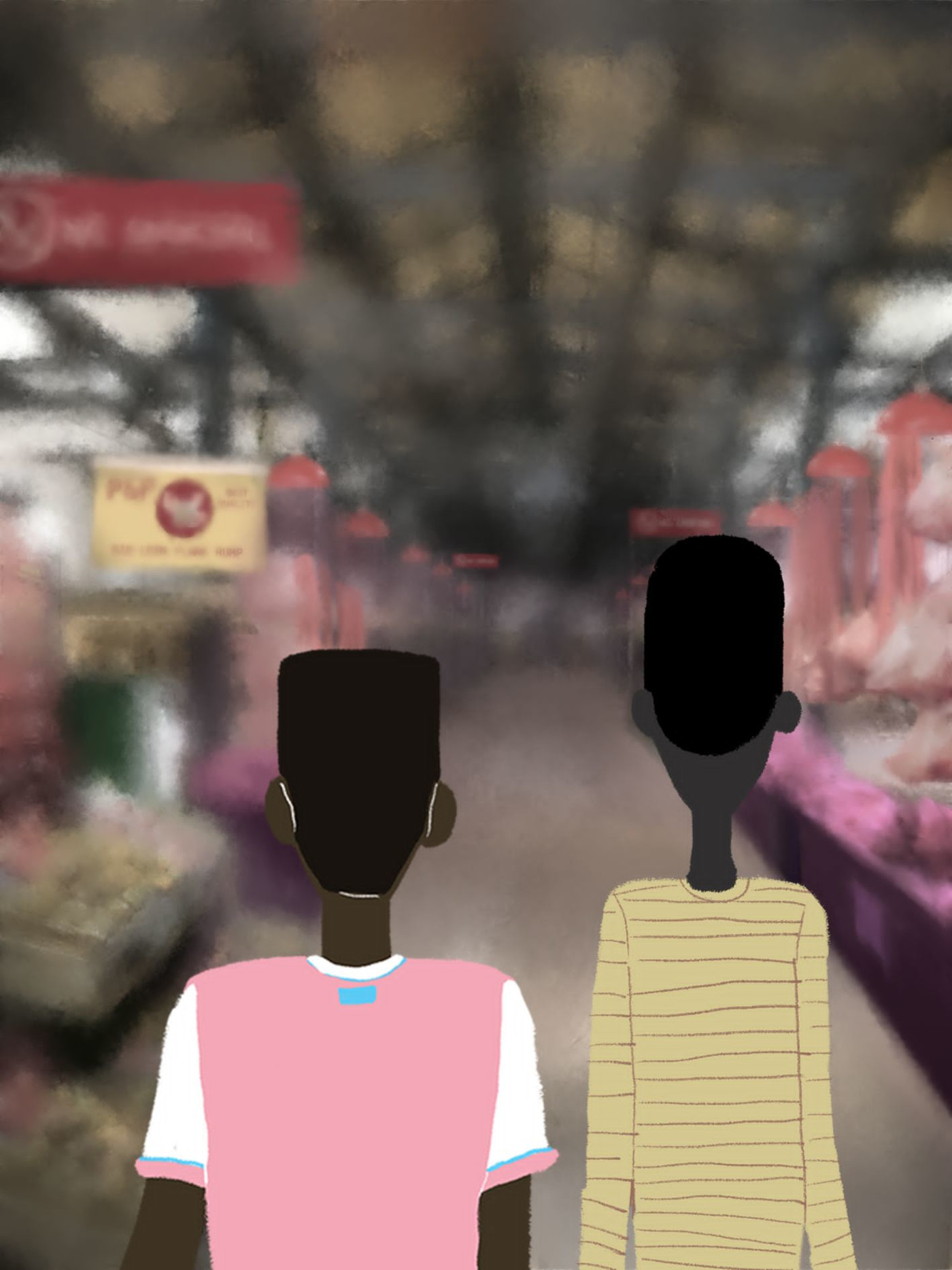 ‘Two Black Boys in Paradise’ Concept Art
‘Two Black Boys in Paradise’ Concept Art
Can you describe how you developed your visual approach to the film? Why did you settle on this style/technique?
When Ben sent over Dean’s poem, it felt like stop-motion to me. The art form, like the poem, has an honesty to it. Visually, I knew stop-motion would allow me to shift tone and emotion as the poem does. My visual approach was instinctive, and many of my initial ideas made it into the film. Beyond that, it was about teamwork, first, co-writing with Ben and Dean, working with the art director Sanna Räsänen to establish a style which embraced and celebrated imperfect forms, and working with the crew to establish an authentic creative identity based upon in-depth conversations about our themes and intent.
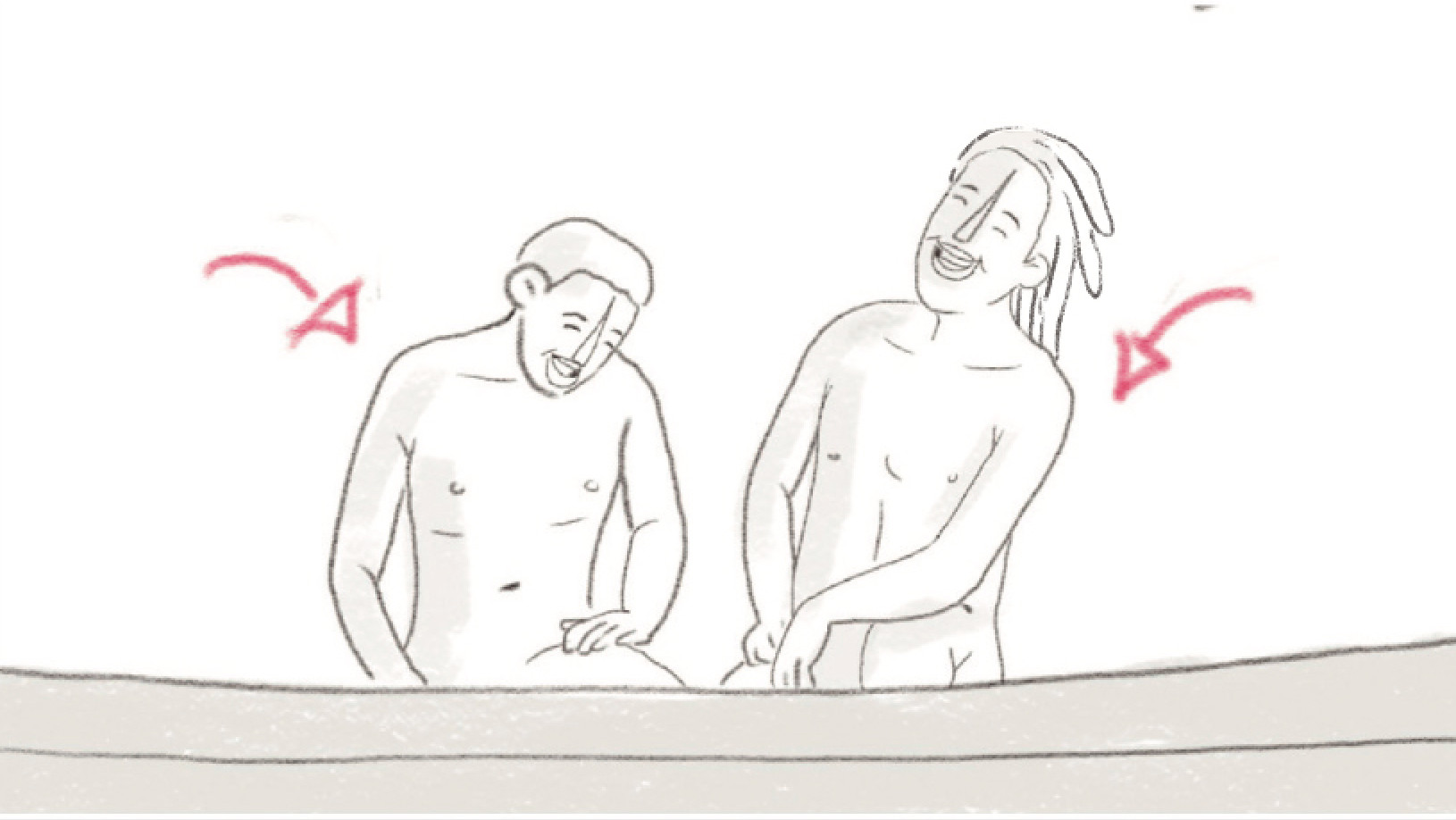 ‘Two Black Boys in Paradise’ Storyboard
‘Two Black Boys in Paradise’ Storyboard
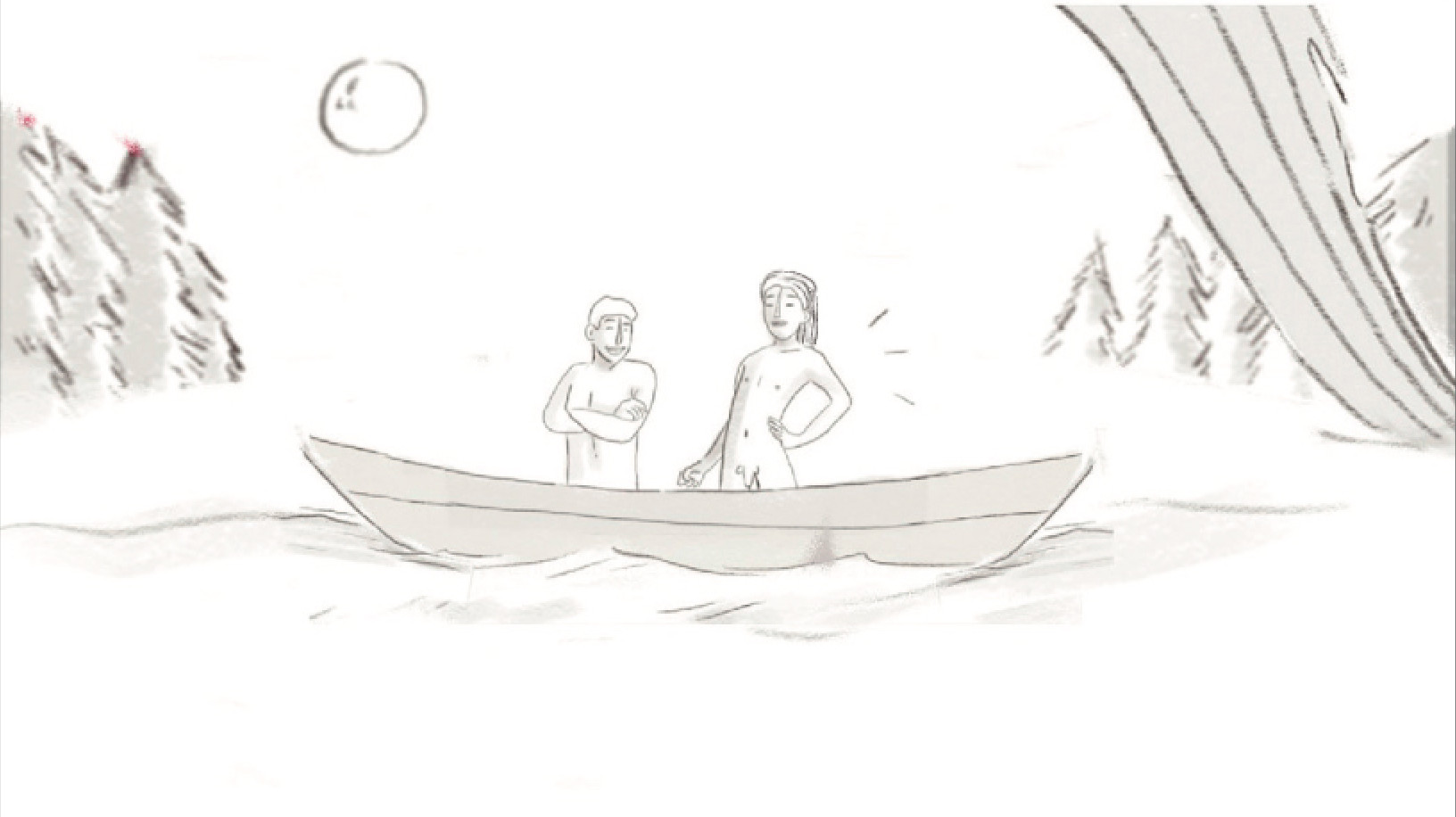 ‘Two Black Boys in Paradise’ Storyboard
‘Two Black Boys in Paradise’ Storyboard
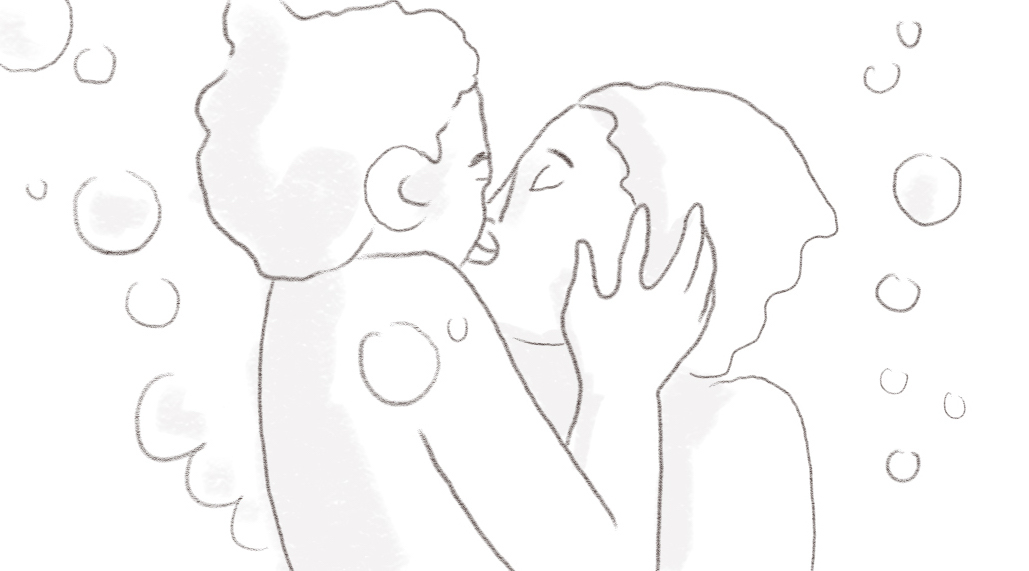 ‘Two Black Boys in Paradise’ Storyboard
‘Two Black Boys in Paradise’ Storyboard
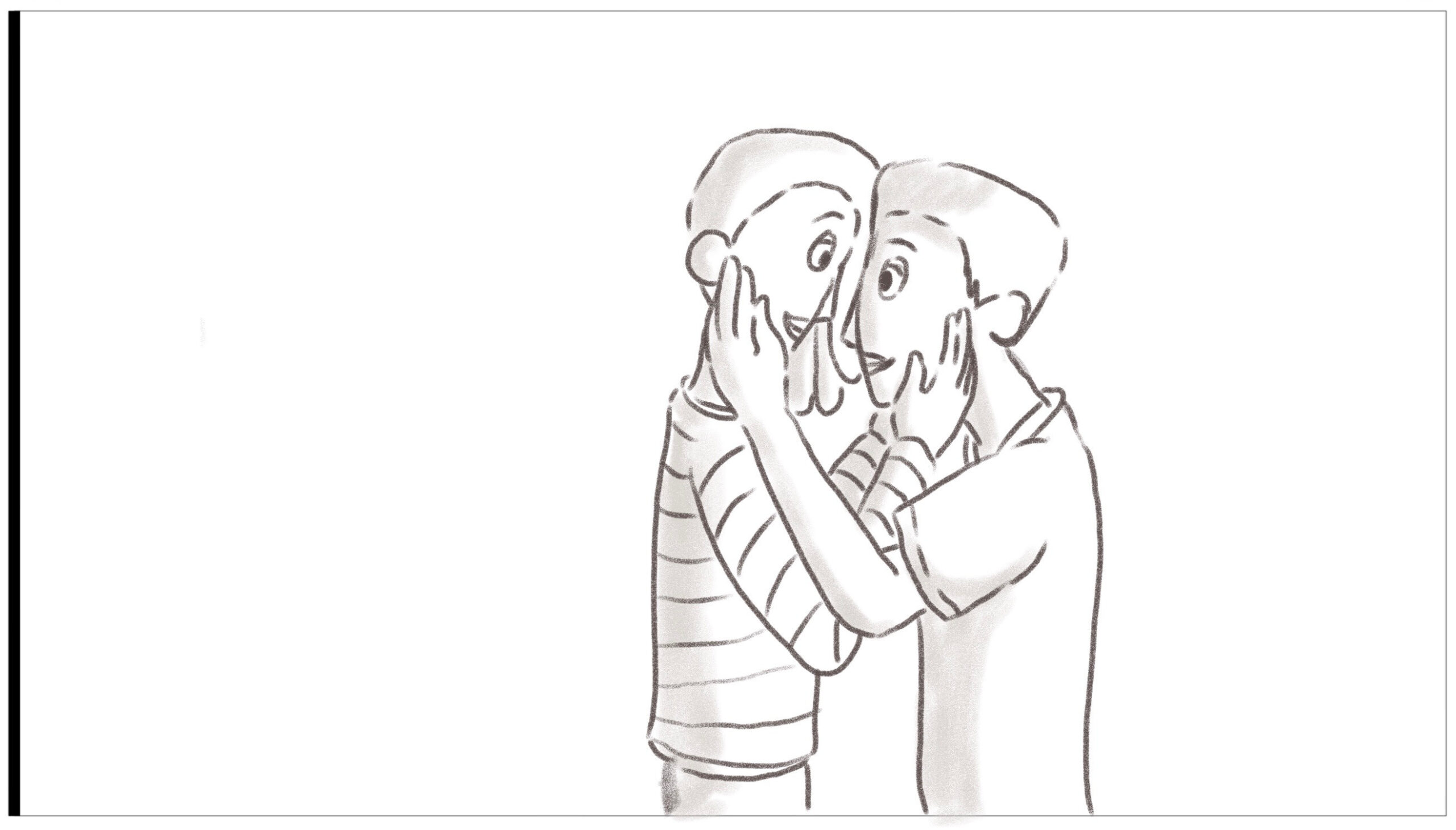 ‘Two Black Boys in Paradise’ Storyboard
‘Two Black Boys in Paradise’ Storyboard
The focus of the short shifts from society’s lack of acceptance of the two Black boys to a story about their own self-acceptance and how they see themselves. How did you balance that shift, and why was it important to start with the boys being rejected by their community?
For me, we intentionally blur the lines between the internal and external pressures felt by the boys. Initially, we open on Edan’s self-doubt in paradise and hint at this again at the start of the market scene; in that regard, the film comes full circle in dealing with the boys’ feelings of self-acceptance and empowerment. Whilst our lens is unapologetically focused on Edan and Dula’s story, we also give glimpses into the stories of some of the other market characters – not only to add depth, but to quietly convey the positive impact the boys have had on others and how intertwined self-acceptance and social acceptance can be.
 ‘Two Black Boys in Paradise’ Set Photo
‘Two Black Boys in Paradise’ Set Photo
 ‘Two Black Boys in Paradise’ Set Photo
‘Two Black Boys in Paradise’ Set Photo
 ‘Two Black Boys in Paradise’ Set Photo
‘Two Black Boys in Paradise’ Set Photo
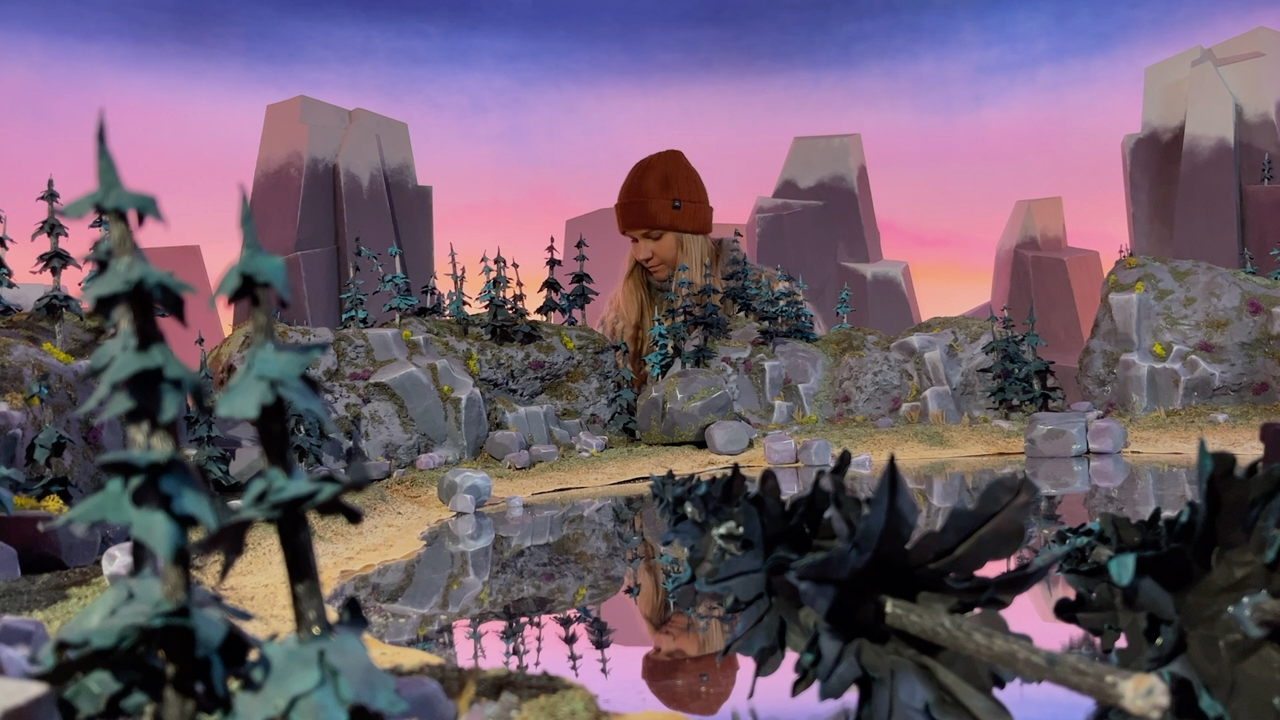 ‘Two Black Boys in Paradise’ Set Photo
‘Two Black Boys in Paradise’ Set Photo

